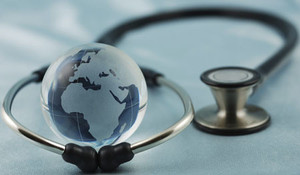The World Health Organization (WHO) announced on 4 May 2017 that it would launch a pilot project for prequalifying biosimilars. This move says the organization, is a ‘step towards making some of the most expensive treatments for cancer more widely available in low- and middle-income countries’.
The WHO prequalification of medicines is a service provided by the organization to assess the quality, safety and efficacy of medicinal products. It was launched in 2001, in partnership with UNAIDS, UNICEF and the UN Population Fund, with support from the World Bank [1]. Originally, the focus was on medicines for treating HIV/AIDS, tuberculosis and malaria. In 2006, this was extended to cover medicines and products for reproductive health and again in 2008, to cover prequalification of zinc, for managing acute diarrhoea in children. At the end of 2012, the WHO List of Prequalified Medicinal Products contained 316 medicines for priority diseases.
WHO states that it will invite manufacturers to submit applications in September 2017 for prequalification of biosimilars of rituximab (used principally to treat non-Hodgkin’s lymphoma and chronic lymphocytic leukaemia) and trastuzumab (used to treat breast cancer).
The European Medicines Agency’s (EMA) Committee for Medicinal Products for Human Use (CHMP) recommended approval of Sandoz’s rituximab biosimilars (Rixathon and Riximyo) in April 2017. EMA has not yet approved a trastuzumab biosimilar. However, Amgen, Biocon/Mylan, Celltrion and Samsung Bioepis/Merck have all submitted applications for their trastuzumab biosimilars to EMA [2].
‘Innovator biotherapeutic products are often too expensive for many countries, so biosimilars are a good opportunity to expand access and support countries to regulate and use these medicines’, said Dr Marie-Paule Kieny, WHO Assistant Director General for Health Systems and Innovation.
WHO also announced that it would be reviewing its 2009 Guidelines on the evaluation of similar biotherapeutic products, ‘to ensure that WHO’s guidance to national regulatory authorities reflects recent evidence and experience’.
Related articles
First prequalification submissions for generic dolutegravir
WHO prequalification programme for APIs
References
1. GaBI Online - Generics and Biosimilars Initiative. WHO prequalification programme for medicines [www.gabionline.net]. Mol, Belgium: Pro Pharma Communications International; [cited 2017 May 12]. Available from: www.gabionline.net/Policies-Legislation/WHO-prequalification-programme-for-medicines
2. GaBI Online - Generics and Biosimilars Initiative. Biosimilars approved in Europe [www.gabionline.net]. Mol, Belgium: Pro Pharma Communications International; [cited 2017 May 12]. Available from: www.gabionline.net/Biosimilars/General/Biosimilars-approved-in-Europe
Permission granted to reproduce for personal and non-commercial use only. All other reproduction, copy or reprinting of all or part of any ‘Content’ found on this website is strictly prohibited without the prior consent of the publisher. Contact the publisher to obtain permission before redistributing.
Copyright – Unless otherwise stated all contents of this website are © 2017 Pro Pharma Communications International. All Rights Reserved.








 0
0











Post your comment